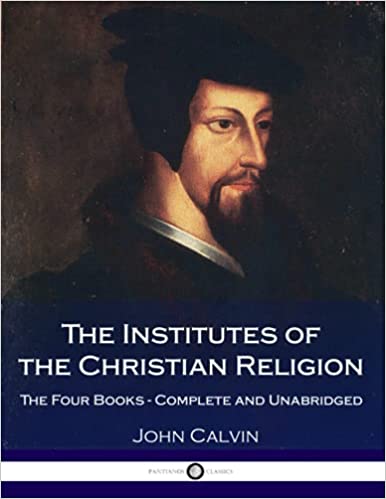The Institutes Of The Christian Religion: The Four Books – Complete and Unabridged

The Institutes Of The Christian Religion is a landmark text in the history of Protestant Christianity, and is a crucial publication amidst the upheaval of the Reformation of the 16th century. Its influence upon the subsequent founding and organization of the Protestant churches was profound, and the work continues to be referenced by scholars and historians to this day. First published in Latin but soon translated to John Calvin's native French, this book is also responsible for a substantive refinement of Francophone linguistics.
Calvin designed his book with the assumption of a basic level of theological knowledge on the part of the reader; namely the tenets of Christianity, the doctrines of the Holy Bible and the central importance of the Lord Jesus Christ. Herein we discover a wide-ranging yet thorough text; readers are given a deep and measured explanation of Protestant doctrine, an identification of the differences which Protestantism has with the Holy Catholic church, the errors identified in Catholicism, and a call to action following the divine calling of Christ and God.
Many inspirations may be observed in the manner John Calvin writes this text: the sacramental elements and the observance of the faith emphasized by Martin Luther, and the establishment of the divine will as noted by Martin Bucer are present. Prior to the publication of this work, other, shorter books attempted to explain Protestant theology. None however possessed the thoroughness or scholarly distinction of Calvin's work, which became both popular and vital to the growth of Protestantism as a Christian movement.
Where other editions may omit, condense or otherwise abridge the words of John Calvin, this printing does no such thing. Based upon a 1581 reprint of Thomas Norton's original translation first published in 1561, we find here the original version of the English text in its entirety as published during John Calvin's lifetime. An extensive table of contents allows readers to navigate and reference the text, which is organized into the traditional four book format established in the 16th century.
As mentioned in:
- Episode #60 – History as a Center Cannot Hold (with Angelina Stanford!) by Mystie during the Scholé Every Day segment
- Episode #64 – How Christmas is Like a Funeral during the Scholé Every Day segment by Mystie
- Episode #132 – Intellectual Habit Training
- Episode #159 – Curriculum Is More Than Something You Buy (referenced for its theme of piety and its influence on education)
